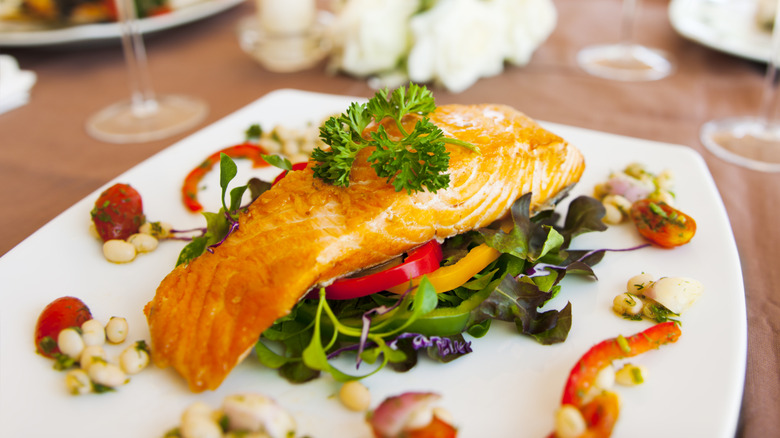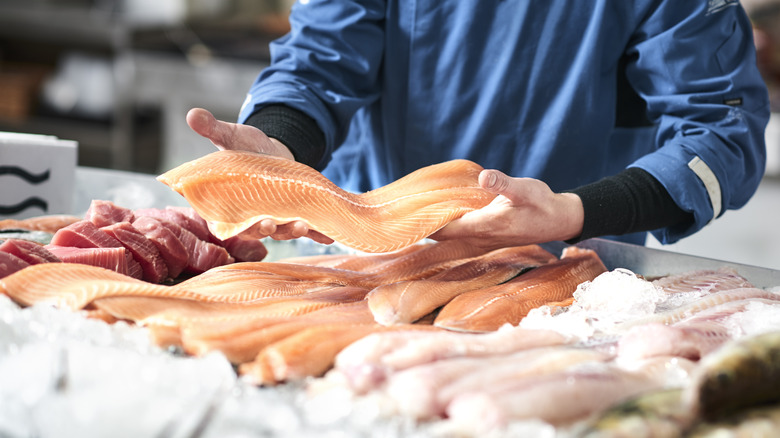Why You Should Eat At Seafood Restaurants Earlier In The Day
There's nothing better than a glorious seafood feast, but can the timing of your restaurant visit really affect the quality of your meal? To learn more, Mashed reached out to Kory Foltz, the executive chef of Sunseeker Resort, for answers. Foltz previously helped us identify the biggest red flag at seafood restaurants, which was that low prices often mean low quality where food is concerned. As for our latest seafood query, Foltz claims that you'll have access to the widest selection if you patronize the establishment a bit earlier in the day.
As the chef explains, "To ensure you get the full ability to order anything on the menu, earlier is better." Foltz's culinary experience has given him insight into how restaurants handle the acquisition of fish and other seafood. "Most chefs order their fish on a daily basis," says Foltz. According to the executive chef, that means if you visit an establishment later in the day, "the higher the chance they could run out of a fish you want to order." Foltz's reasoning is similar to the advice not to order fish on a Monday, one of the many mistakes everyone makes when ordering fish, as it's likely been hanging around the restaurant for days instead of being sold during the busy weekend.
Is dinner too late for a wide selection of seafood?
If you're wondering just how early you need to schedule your seafood restaurant excursion, chef Kory Foltz has specific suggestions. "Go for lunch or stick to prime time dinner hours for the best experience," states Foltz. These times should be early enough that the restaurant hasn't been completely depleted of its daily assortment of seafood. While meal times can vary from place to place, lunch at restaurants is frequently served between 12 p.m. and 2 p.m., while dinner typically begins at 5:30 p.m. — so evening visits aren't too late as long as it's closer to dusk than midnight.
In addition to when you visit, what you order at a seafood restaurant can also affect your satisfaction with the meal. Local fish and seafood is typically the freshest, because it has a shorter journey to get to the dining establishment. If the menu doesn't identify local catches, feel free to ask your server for their input.
If you can't decide what to order, let the specials board be your guide. At high-quality restaurants, chefs often use specials to experiment with new seafood selections and preparations, so diners can benefit from this ingenuity — if they're willing to give a new dish a try. With Foltz's professional guidance, your next trip to a seafood restaurant is bound to be a delight.

